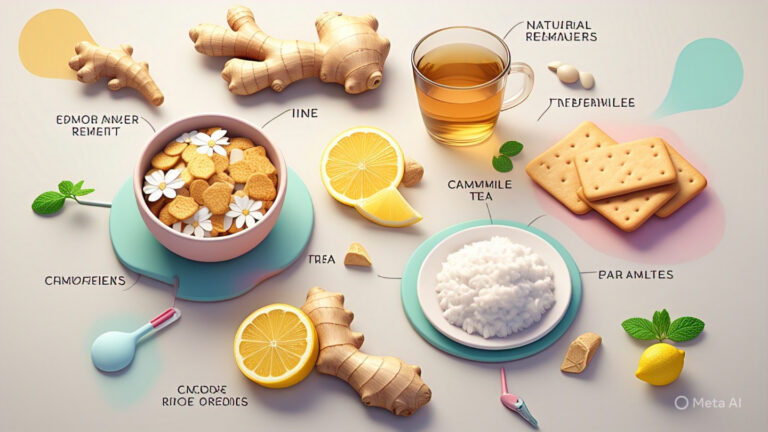Home Remedies for Gum Inflammation: Natural Relief Secrets Unveiled
Estimated reading time: 8 minutes
Key Takeaways
- Gum inflammation, often linked to gingivitis, can be managed with accessible natural remedies for mild cases.
- Simple solutions like saltwater rinses and aloe vera gel offer soothing relief with minimal risk.
- Safety first: Overuse of potent remedies like tea tree oil can cause irritation; always dilute and follow guidelines.
- Prevention through proper oral hygiene and diet is crucial to avoid recurring inflammation.
- Seek dental care if symptoms persist beyond 7-10 days or worsen with severe pain or swelling.
Table of Contents
- Introduction to Gum Inflammation and Home Remedies
- What Is Gum Inflammation? Understanding the Basics
- Top 10 Home Remedies for Gum Inflammation
- How to Choose the Right Remedy for Your Needs
- Safety Precautions and Potential Risks of Home Remedies
- Prevention Tips for Maintaining Healthy Gums
- When to Seek Professional Help for Gum Issues
- Frequently Asked Questions (FAQs) About Gum Inflammation
Introduction to Gum Inflammation and Home Remedies
Gum inflammation can be a real nuisance, causing discomfort that disrupts your daily routine. Whether it’s swelling, redness, or soreness while brushing, many of us seek safe, natural ways to ease this irritation. At WikiHomeRemedies, we understand your need for relief and are here to guide you through practical solutions rooted in nature and supported by science.
This article is your roadmap to managing gum inflammation with home remedies that are both accessible and effective for mild cases. We’ve drawn insights from trusted sources like the Mayo Clinic, NIH, and the American Dental Association (ADA) to ensure you receive accurate information. Alongside these remedies, we’ll explore causes, prevention strategies, and when to seek professional help, empowering you to take charge of your oral health.
Our goal is simple: to provide clear, evidence-backed steps that bring comfort while honoring the healing power of nature. Let’s dive into understanding gum inflammation and how to address it wisely.
What Is Gum Inflammation? Understanding the Basics
Gum inflammation is a widespread oral health concern, often signaling the early stages of gingivitis or other irritations. It happens when your gums become swollen or sore, typically around the base of your teeth. If you’ve noticed discomfort while eating or brushing, you might be dealing with this condition.
Common signs are easy to spot. You may see redness along your gumline, experience bleeding during brushing, or feel tenderness when touching the area. Some even notice a slight puffiness that wasn’t there before. These symptoms often point to an underlying issue that needs attention.
Several factors can trigger this discomfort. Poor oral hygiene allows plaque to build up, irritating gums over time. Gingivitis, a mild gum disease, is a frequent culprit. Other causes include nutritional gaps like low Vitamin C, hormonal shifts during pregnancy or menopause, or even irritation from braces or dental injuries. Understanding what’s behind your inflammation helps in picking the right approach to soothe it.
Research from the ADA shows that nearly half of adults experience some form of gingivitis, making this a shared struggle. Knowing the root cause not only aids in relief but also prevents future flare-ups. Let’s explore how natural remedies can step in as a first line of support.
Top 10 Home Remedies for Gum Inflammation
When gum inflammation strikes, nature offers a wealth of solutions to ease the discomfort. Below, we’ve gathered ten remedies that blend traditional wisdom with scientific backing. Each one comes with clear steps and safety tips to help you apply them confidently.
3.1 Saltwater Rinse
A saltwater rinse is one of the simplest ways to calm irritated gums. It works by reducing harmful bacteria in your mouth while soothing inflamed tissue. This remedy is often recommended for its affordability and ease.
To prepare, dissolve half a teaspoon of salt in a glass of warm water. Swish this mixture in your mouth for about 30 seconds, then spit it out. Repeat two to three times daily for best results. Be mindful not to overdo it, as too much salt can dry out your mouth, leading to further discomfort. Studies from sources like PubMed highlight saline rinses as a supportive measure for oral health, making this a trusted starting point.
3.2 Turmeric Paste
Turmeric, a golden spice, holds powerful anti-inflammatory properties thanks to curcumin, its active compound. It’s been used in traditional practices like Ayurveda for centuries to tackle swelling and irritation. For gum inflammation, it can offer targeted relief.
Mix a teaspoon of turmeric powder with a bit of water or honey to form a paste. Gently apply this to your gums with a clean finger or cotton swab, leaving it on for a minute before rinsing. Use this once daily, but take care as it may temporarily stain teeth or skin. Small studies suggest curcumin can help reduce gum swelling, aligning with its historical use.
3.3 Aloe Vera Gel
Aloe vera is nature’s balm, known for its cooling and healing effects on irritated tissues. It can be a gentle ally for inflamed gums, providing a calming sensation. Opt for pure, natural gel to ensure safety.
Scoop out fresh gel from an aloe leaf or use a store-bought product without added sugars. Apply a small amount directly to your gums, massaging lightly, then rinse after a couple of minutes. Do this twice daily. Research from the NIH supports aloe’s soothing potential, cementing its place as a reliable option for mild gum issues.
3.4 Tea Tree Oil Rinse
Tea tree oil carries strong antibacterial traits, making it a candidate for fighting gum inflammation tied to bacterial buildup. However, its potency demands careful use. Never swallow it, as it can be toxic.
Add two to three drops of tea tree oil to a glass of warm water. Swish this diluted mix for 20 to 30 seconds, then spit it out completely. Use this rinse once daily and store the oil away from children. Studies note its antimicrobial effects, which can complement oral hygiene when used responsibly.
3.5 Clove Oil Application
Clove oil has long been valued for its numbing and pain-relieving qualities, often used historically for dental woes. It can help ease gum soreness when applied with caution. Dilution is key to avoid irritation.
Mix a drop of clove oil with a teaspoon of carrier oil like coconut or olive oil. Dab this onto affected gums using a cotton swab, avoiding overuse. Limit to once or twice daily. Traditional use and small studies back its analgesic potential, though sensitive gums may need lighter application.
3.6 Cold Compress
A cold compress offers quick respite by curbing swelling around inflamed gums. It’s especially handy when discomfort feels pronounced on one side of your mouth. This method requires no preparation beyond a few household items.
Wrap an ice pack or a bag of frozen peas in a thin cloth. Place it against your cheek near the sore area for 10 to 15 minutes. Take breaks to avoid skin irritation. Resources like Everyday Health affirm that cold can shrink swelling, providing a fast, non-invasive fix.
3.7 Hydrogen Peroxide Rinse
Hydrogen peroxide acts as an antimicrobial agent, helping to clear bacteria that worsen gum inflammation. It must be used sparingly and correctly to avoid harm. Safety is paramount with this remedy.
Dilute a 3% hydrogen peroxide solution by mixing equal parts with water. Swish for 20 seconds, then spit it out—never swallow. Use this once daily for a few days only, stopping if irritation occurs. The Cleveland Clinic notes its effectiveness in oral care when handled with care, making it a short-term aid.
3.8 Chamomile Tea Rinse
Chamomile tea brings a gentle, calming effect to irritated gums, thanks to its natural anti-inflammatory nature. It’s a comforting rinse that’s easy to prepare at home. This remedy suits those seeking mild relief.
Steep a chamomile tea bag in hot water for five minutes, then let it cool to room temperature. Rinse your mouth with the tea for 30 seconds, repeating twice daily. Its soothing reputation, backed by small studies, makes it a cozy addition to your routine.
3.9 Oil Pulling with Coconut Oil
Oil pulling, often done with coconut oil, aims to reduce plaque and bacteria in the mouth. While evidence is mixed, many find it a refreshing practice for gum health. It takes patience but can be rewarding.
Swish a tablespoon of coconut oil in your mouth for 10 to 15 minutes, then spit it into a trash can to avoid clogging sinks. Do this once daily before brushing. Limited studies and insights from sources like Dr. Axe suggest it may support oral cleanliness over time.
3.10 Green Tea Rinse
Green tea is packed with antioxidants that can nurture gum health and fight inflammation. It’s a subtle yet supportive rinse that pairs well with other remedies. Preparing it is straightforward.
Brew a cup of green tea, let it cool completely, then swish it in your mouth for 30 seconds. Use this twice daily for a gentle boost. Research points to green tea’s benefits for gums, offering a simple way to incorporate nature’s goodness into your care.
How to Choose the Right Remedy for Your Needs
With so many natural options, picking the right remedy for gum inflammation can feel tricky. Start by considering the intensity of your symptoms and what you have at home. For instance, a saltwater rinse works well for mild irritation, while a cold compress suits sudden swelling.
Think about personal factors too. If you’re prone to allergies, avoid essential oils like tea tree or clove until you’re sure they’re safe for you. Test a single remedy for 48 to 72 hours to gauge its effect before combining it with others. Pairing a rinse like chamomile tea with aloe vera gel can enhance soothing results for some.
Your goal matters as well. Seeking quick relief? Opt for a cold compress. Aiming for ongoing gum support? Green tea or oil pulling might be your path. Listen to your body and adjust as needed, ensuring you’re easing discomfort without added stress. For additional insights on soothing oral discomfort, check out related tips on managing hurting gums.
Safety Precautions and Potential Risks of Home Remedies
While natural remedies bring comfort, they come with responsibilities to keep you safe. Overusing potent options like hydrogen peroxide or tea tree oil can irritate gums further or even cause toxicity if swallowed. Always follow dilution guidelines and usage limits shared for each method.
Certain remedies carry specific cautions. Clove oil, though helpful, may sting sensitive gums if not diluted properly. Turmeric can stain, so rinse well after use. For children, pregnant individuals, or those with ongoing health conditions, it’s wise to check with a healthcare provider before starting any remedy.
A simple safety checklist can guide you. Use clean tools or hands when applying pastes, stick to recommended frequencies, and stop if you notice worsening symptoms. Trusted platforms like WebMD and Medical News Today emphasize moderation, ensuring these remedies aid rather than harm your journey to relief.
Prevention Tips for Maintaining Healthy Gums
Keeping gums healthy is the best defense against inflammation, and it starts with daily care. Brush for two minutes twice a day using a soft-bristled brush, as the ADA suggests, to clear plaque without aggravating gums. Floss gently each day to reach spots a brush can’t, preventing buildup.
What you eat plays a role too. Load up on Vitamin C from oranges or bell peppers to strengthen gum tissue. Cut back on sugary snacks that feed harmful bacteria, and sip green tea or munch on berries for antioxidant support. Small dietary shifts can make a lasting difference.
Lifestyle choices matter just as much. If you smoke, consider quitting—Mayo Clinic links it directly to gum disease. Manage stress through simple practices like deep breathing, as high cortisol can weaken oral health. Lastly, don’t skip dental checkups; regular visits catch issues before they grow, keeping your smile strong.
When to Seek Professional Help for Gum Issues
Home remedies can work wonders for mild gum inflammation, but some signs demand a dentist’s care. If soreness or swelling lingers beyond 7 to 10 days despite natural treatments, it’s time to act. Other red flags include severe puffiness, pus, fever, loose teeth, or gums pulling away from teeth.
Ignoring these warnings can lead to bigger troubles. The NIH notes that untreated gum issues may result in tooth loss or even affect overall health by spreading infection. Seeking help isn’t a setback; it’s a step toward protecting your well-being with expert support.
During a dental visit, expect a thorough check. The dentist might clean away stubborn plaque, diagnose deeper conditions, or prescribe treatment. Trust that reaching out is a proactive choice, ensuring your oral health stays on track no matter where home care left off. If you’re also experiencing toothache alongside gum inflammation, explore additional remedies for tooth pain relief.
Frequently Asked Questions (FAQs) About Gum Inflammation
How long does gum inflammation last with home remedies?
With consistent use of remedies like saltwater rinses or aloe vera, mild inflammation may ease in 3 to 7 days. If it persists past 10 days, consult a dentist to rule out underlying issues, as noted by Mayo Clinic.
Can gum inflammation go away on its own?
Minor irritation from temporary causes might fade without intervention if oral hygiene improves. However, persistent inflammation often signals gingivitis or infection, requiring active care or professional input per WebMD.
Are there foods to avoid with inflamed gums?
Steer clear of hard, crunchy foods like chips that can poke sore gums. Limit sugary items and acidic drinks like soda, which irritate tissue and feed bacteria, worsening the condition.
Is gum inflammation always a sign of something serious?
Not always—sometimes it’s from simple irritation or poor brushing habits. Yet, if it’s recurrent or paired with bleeding and pain, it could point to gingivitis or disease, warranting a closer look.
Can children use these home remedies safely?
Some remedies, like saltwater rinses, may suit older children with adult supervision. Avoid potent options like essential oils or hydrogen peroxide for kids, and always consult a pediatrician or dentist first. For related oral concerns like canker sores, consider safe remedies tailored to oral irritations at home remedies for canker sores.










